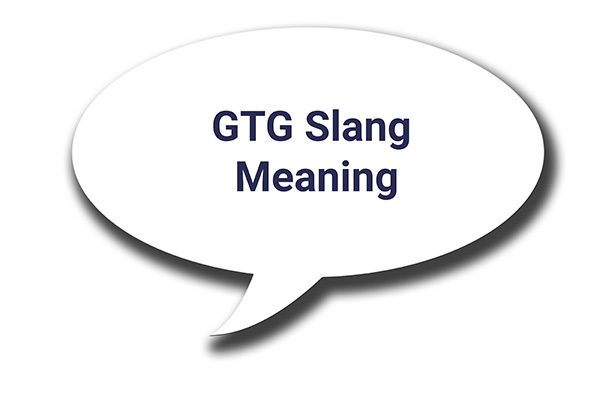
Parenting in the digital age brings up new challenges everyday. As your child plunges deeper into the digital realm, understanding their language and slang becomes crucial for effective communication. One such common term they may use is GTG. Here’s what it means.
GTG: Decoding Its Meaning
GTG is an acronym that stands for 'Got To Go'. Used predominantly in online communication, GTG is an internet slang that indicates the need to exit an ongoing online conversation or session. Despite its simplicity, the term carries significant implications, particularly when used by teenagers.
The ‘GTG’ Slang: Use Cases & Examples
The use of GTG, usually typed in lowercase letters, suggests a pressing need to leave the digital platform. This could be due to an external factor or simply because the user wishes to exit the conversation. GTG originated from internet chatrooms in the ’90s and is now frequently used in online gaming.Be careful not to confuse GTG with its capitalized version ‘GtG’, which in the tech world is an acronym for ‘gray-to-gray’ – a term referring to pixel speed in computer displays. Let’s consider some examples to understand how your teen might use the GTG slang:
- “Mom’s calling for dinner, gtg.”
- “Haven’t finished my assignment yet, gtg!”
- “My favorite show is starting, gtg.”
- “My phone battery is dying, gtg!”
Navigating Conversations Around the Use of GTG
Teaching your teen about responsible online behavior is crucial. It involves ensuring that they avoid getting in trouble while simultaneously protecting them from becoming a laughing stock among their peers.For such situations, GTG can be a part of their ‘digital escape plan’. This refers to the quick methods your child can employ to exit an uncomfortable or potentially harmful online situation.Here are a few strategies you can discuss with your child:
- Advising them to keep things short. If a friend starts sharing inappropriate content or speech, they can type ‘sorry, gtg’ and leave the conversation.
- Help them create a code word that they can text you if they feel uncomfortable and need you to come pick them up immediately.
- If they can’t physically escape an uncomfortable situation, guide them to look for a safe place to wait, such as a locked bathroom or a friend’s room, until you can get there. In a risky situation, there might be others who are also uncomfortable.
They could mutually decide to leave and wait at a safe distance for an adult to arrive.
Stay Ahead with Parentaler's Slang Alert Feature
Keeping up with the latest slang in online communication can be challenging, especially for parents. That's why we've introduced Slang Alert in our Parentaler app – a tool to help you stay aware. With it, customize keywords, receive real-time warnings, and gain contextual understanding. Parentaler's Slang Alert feature sends alerts to parents' phones when their child uses specific monitored slang words.Parenting in a connected world can feel like sailing unknown waters, but with Parentaler, you'll be ahead. Don’t just monitor – understand and participate. Utilize Slang Alert and become the proactive parent your child desires. Join the conversation and enhance your digital parenting with Parentaler.